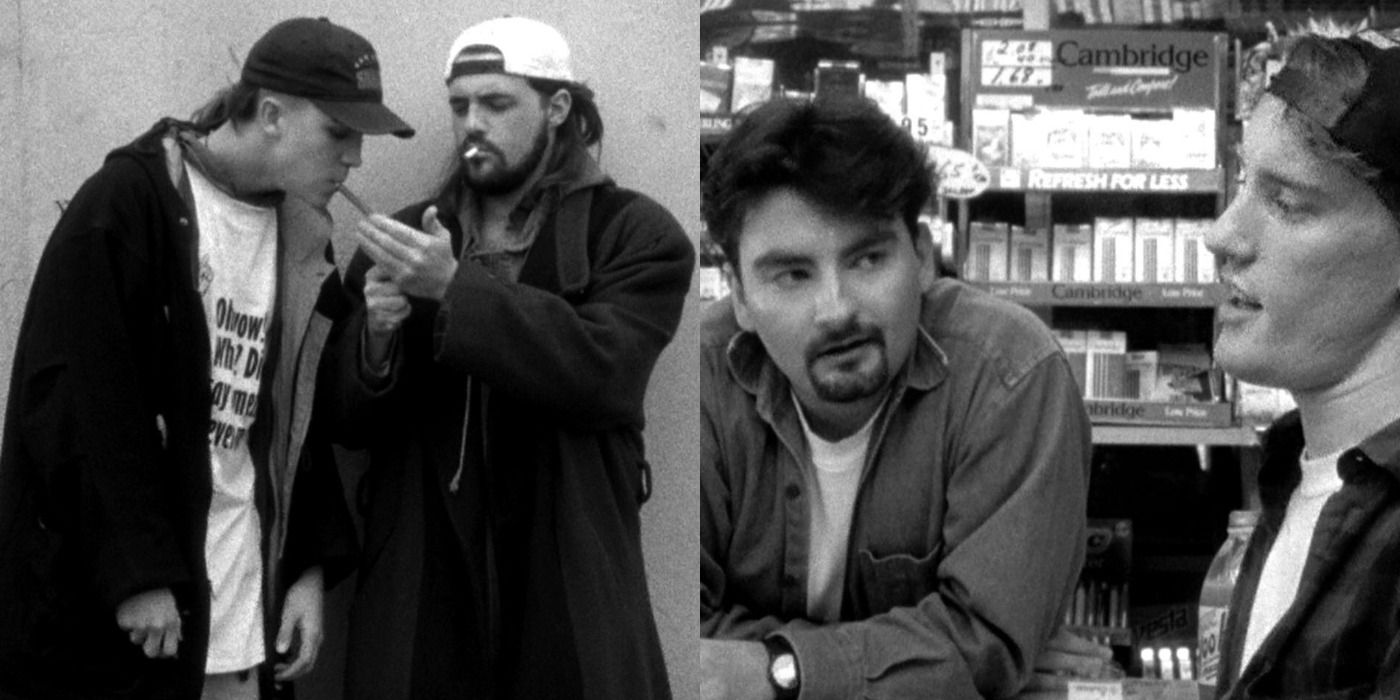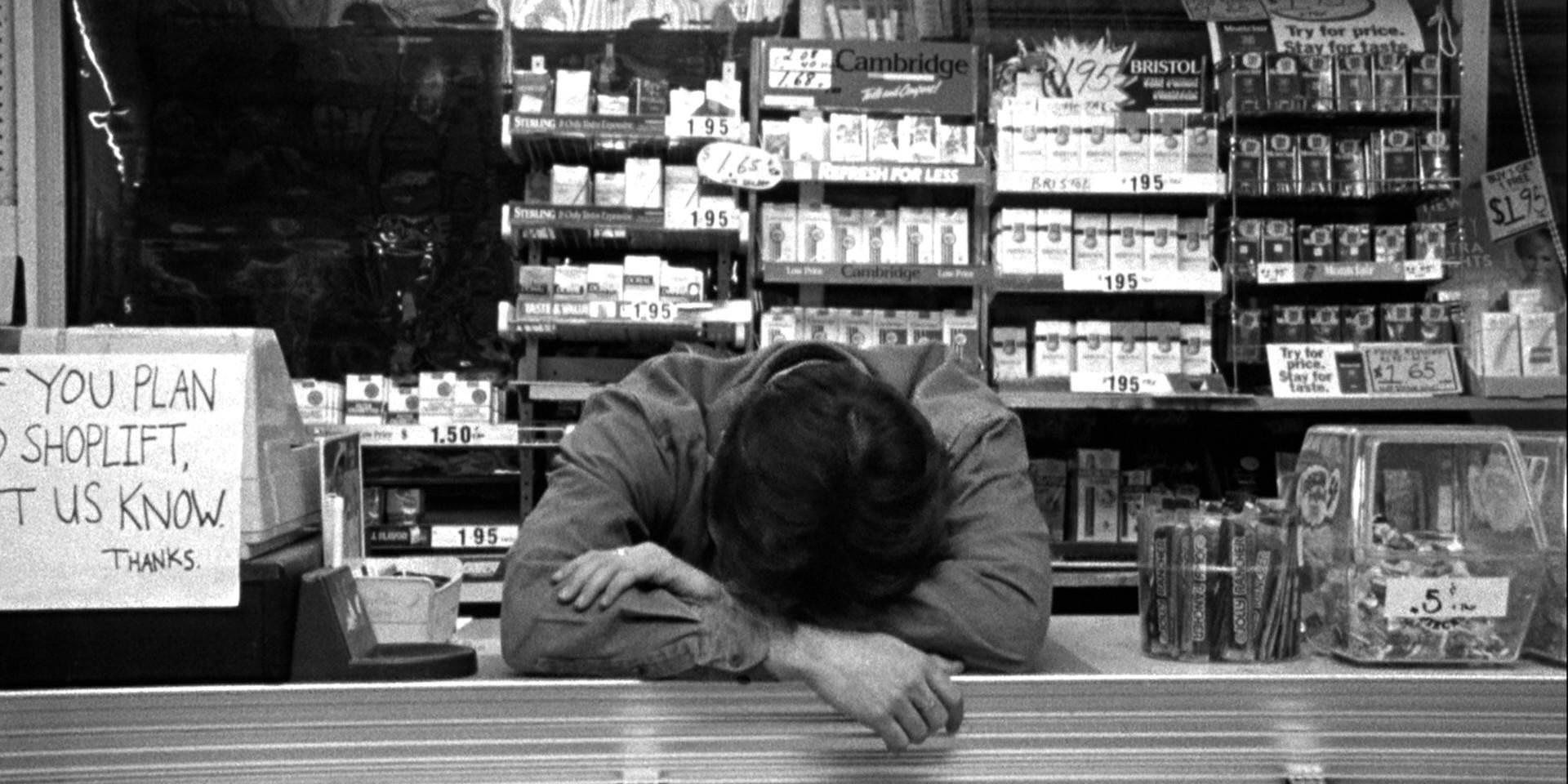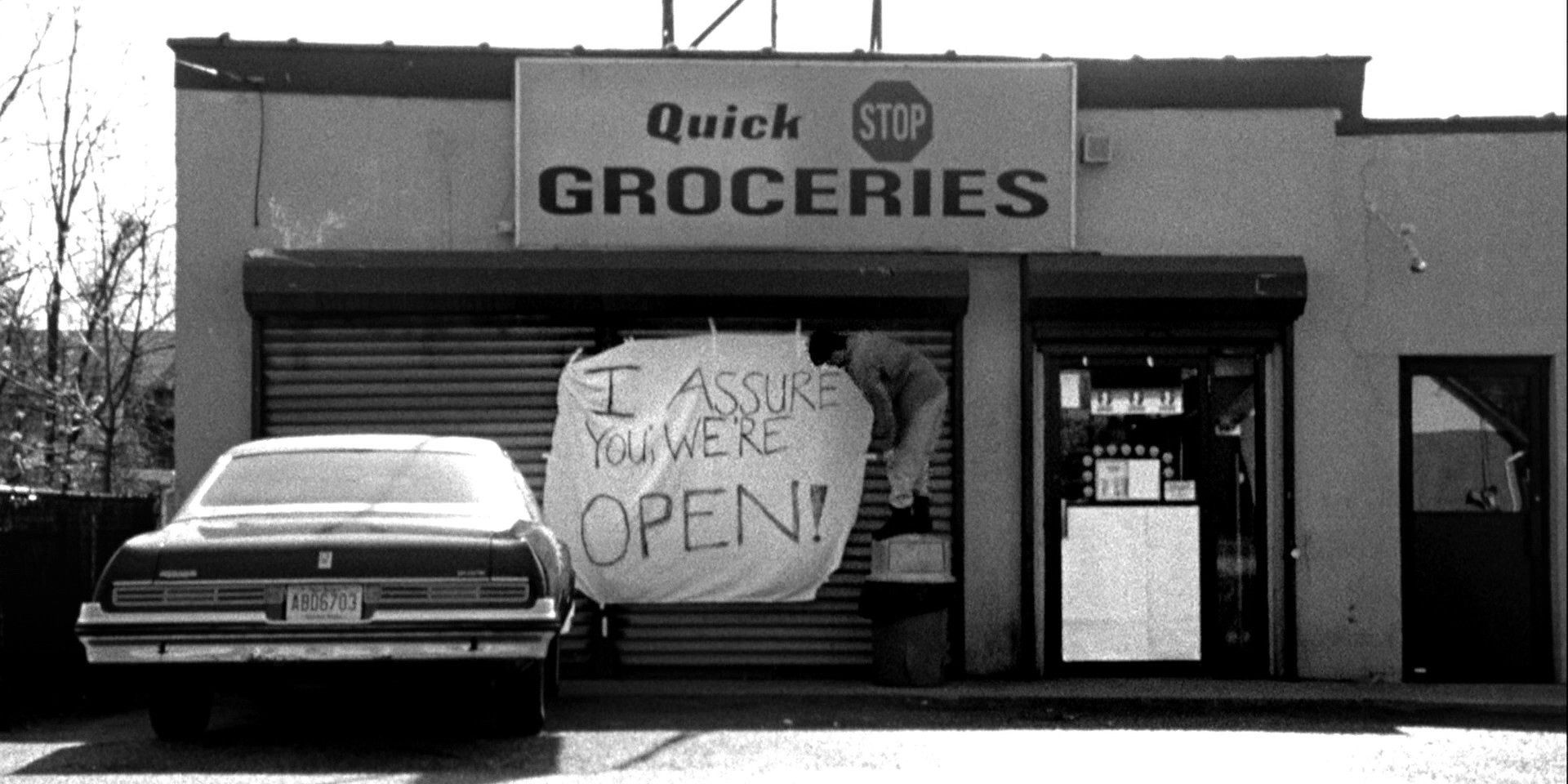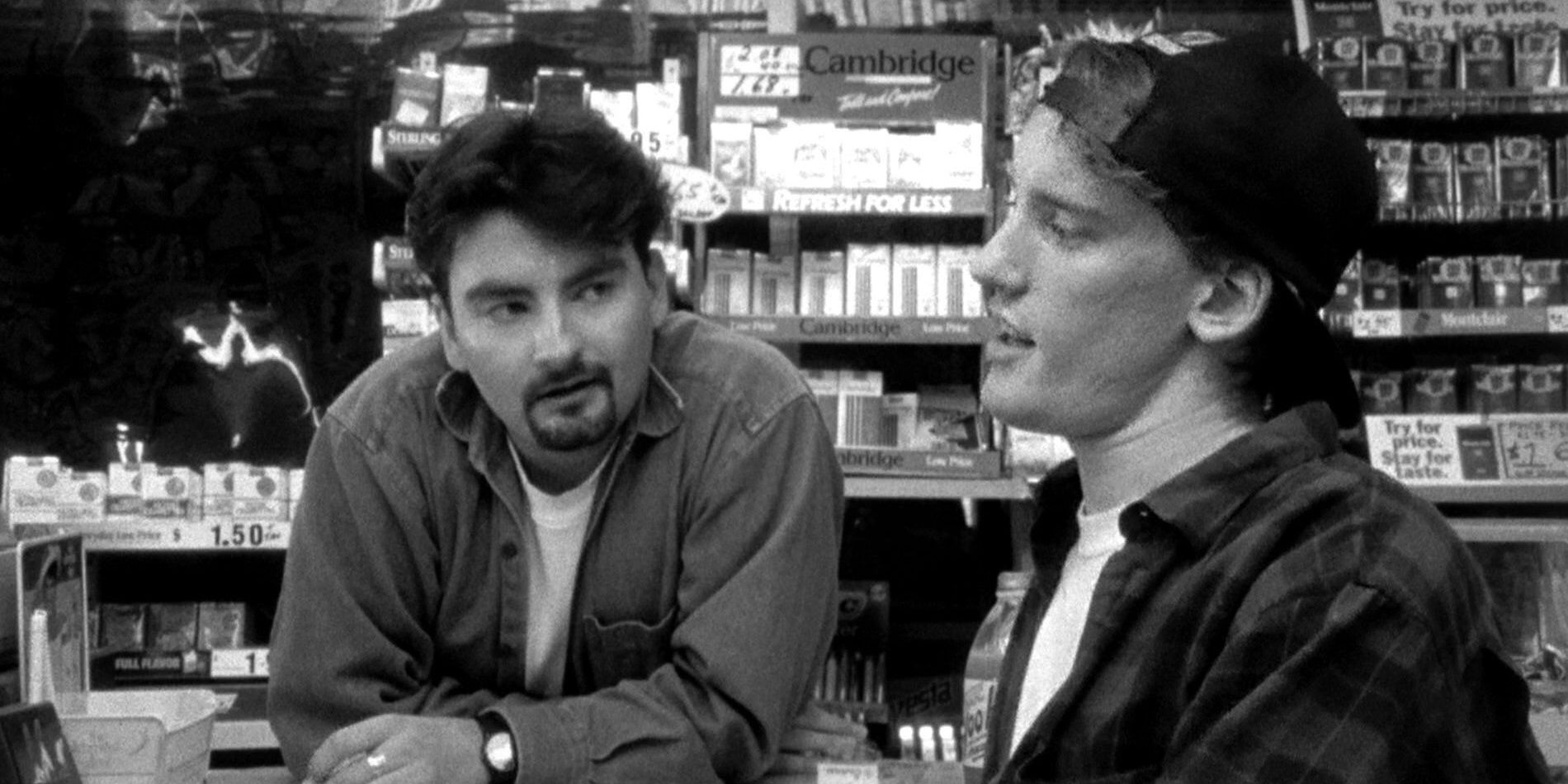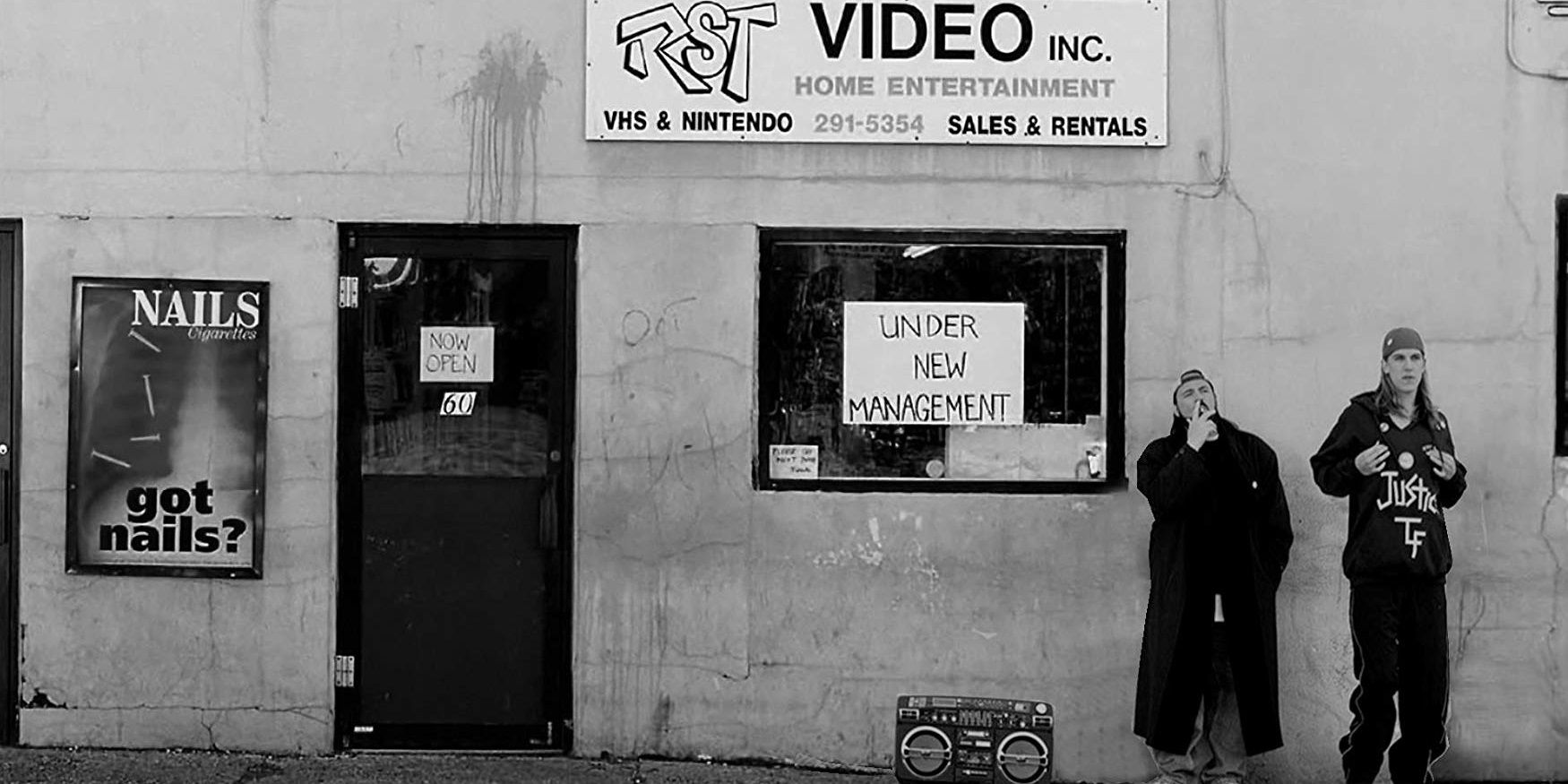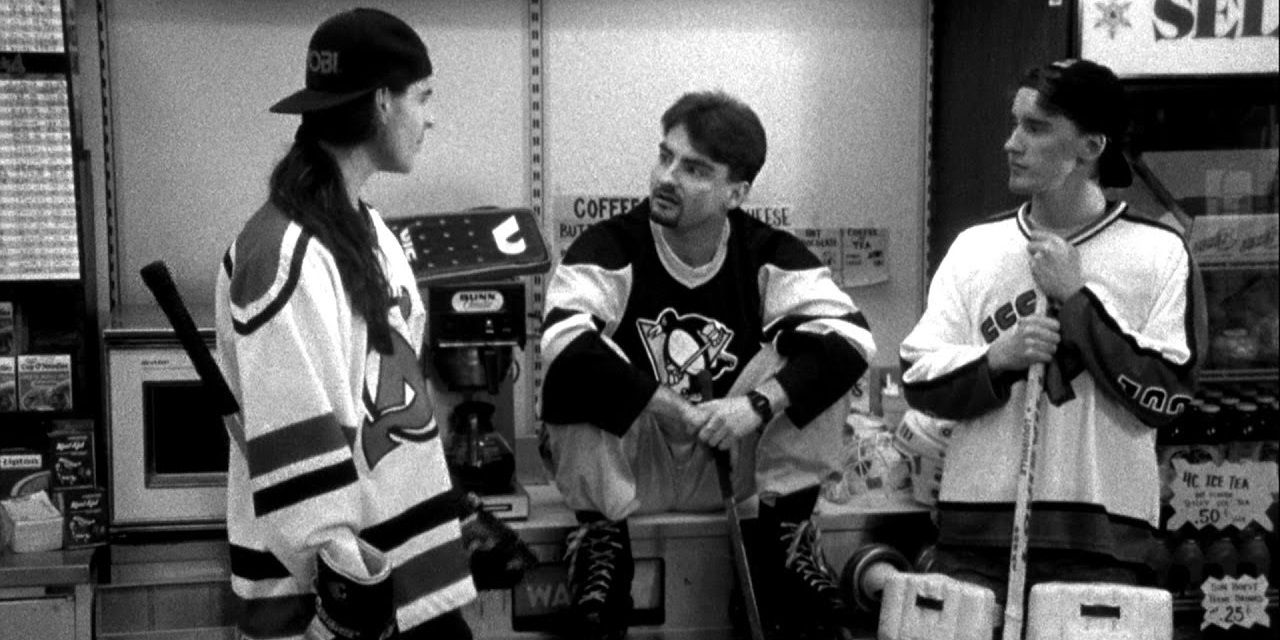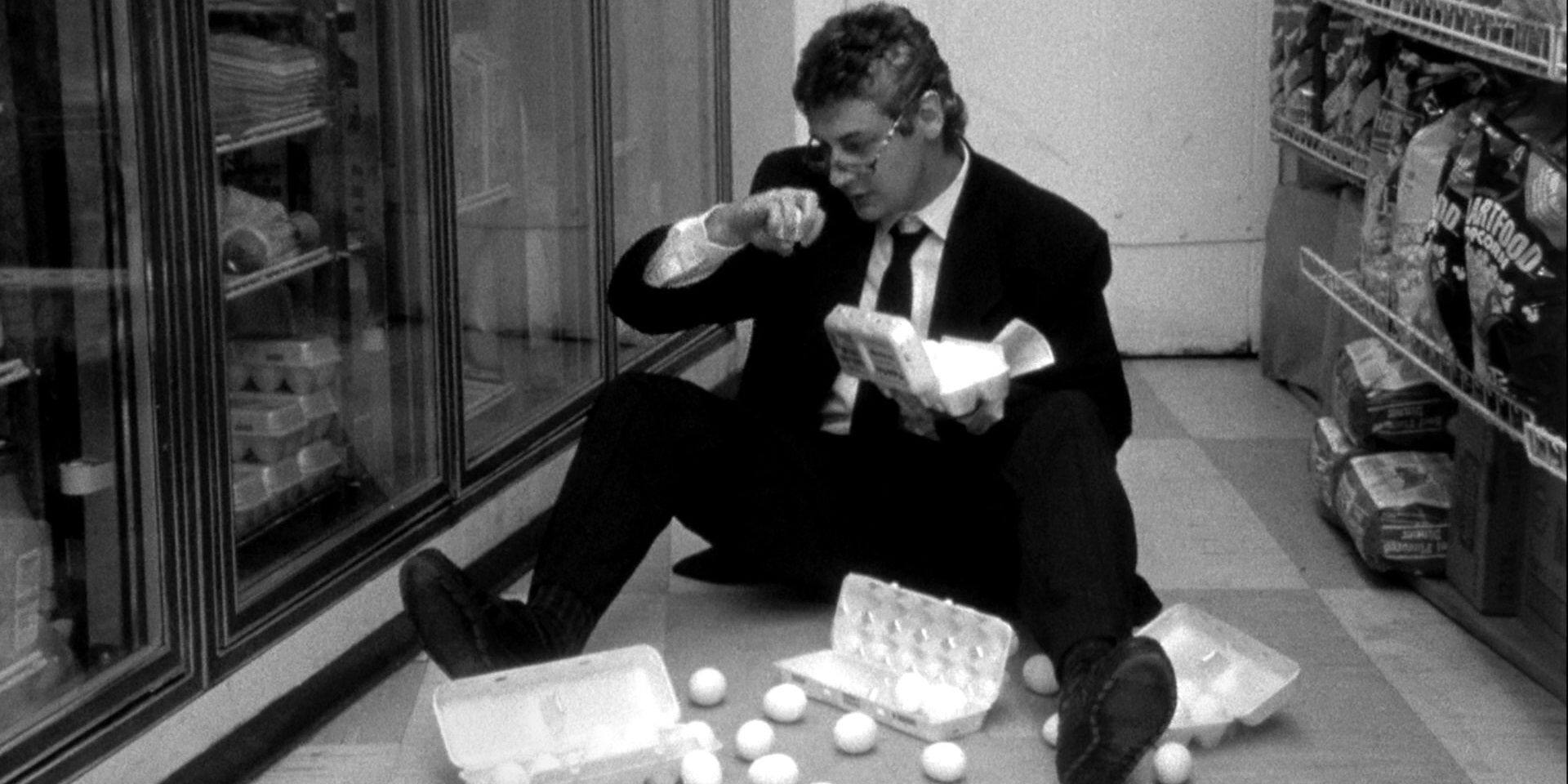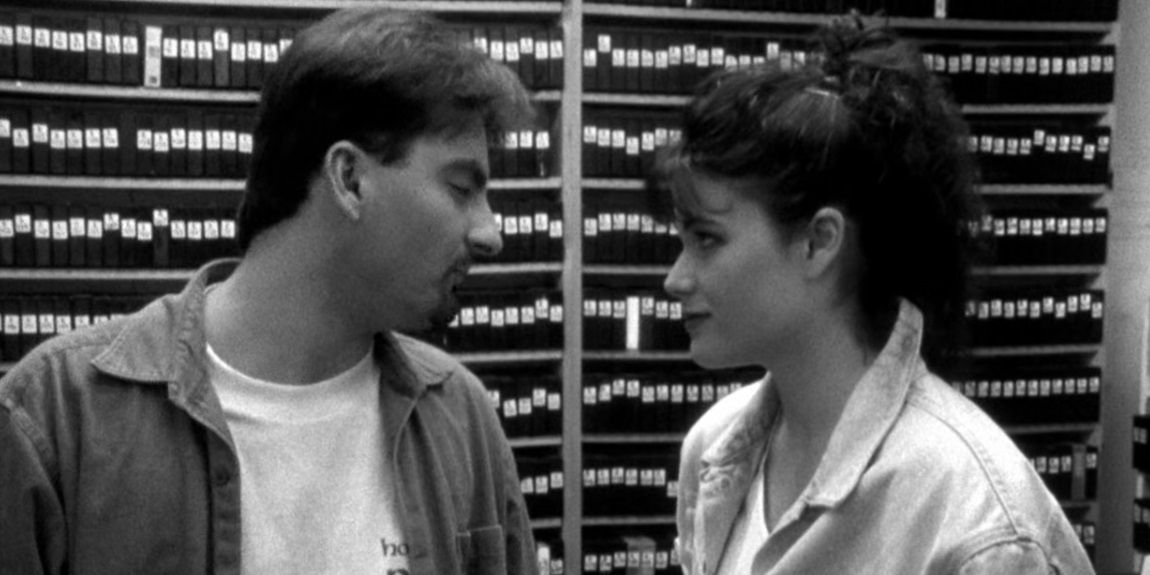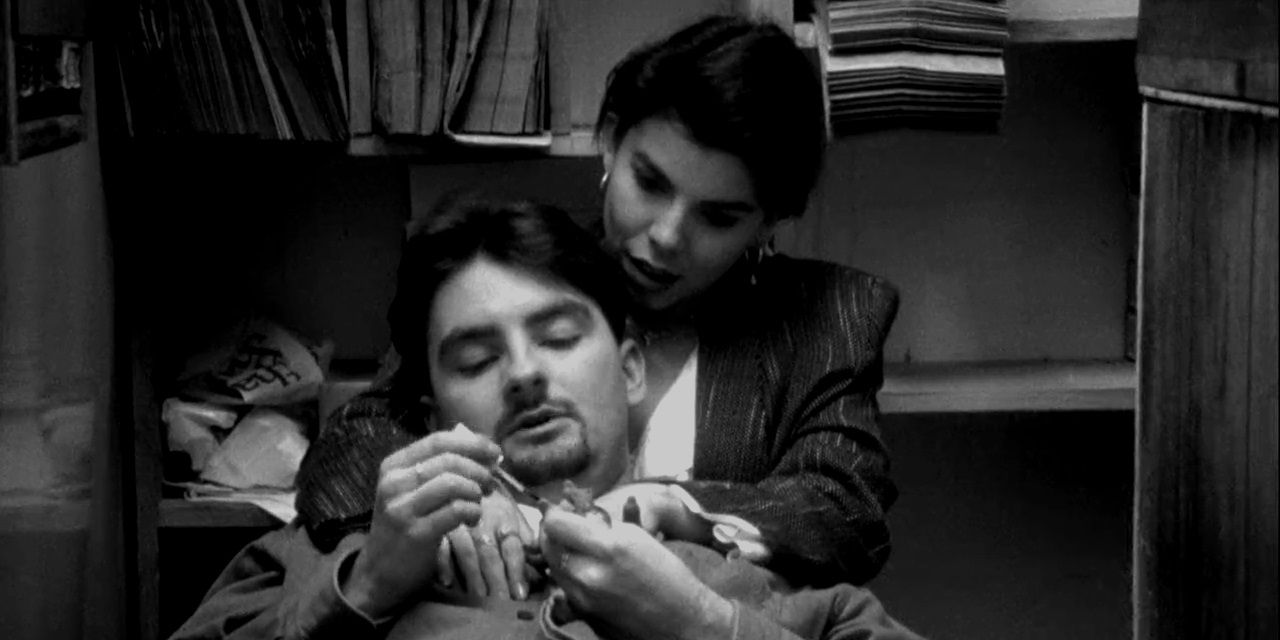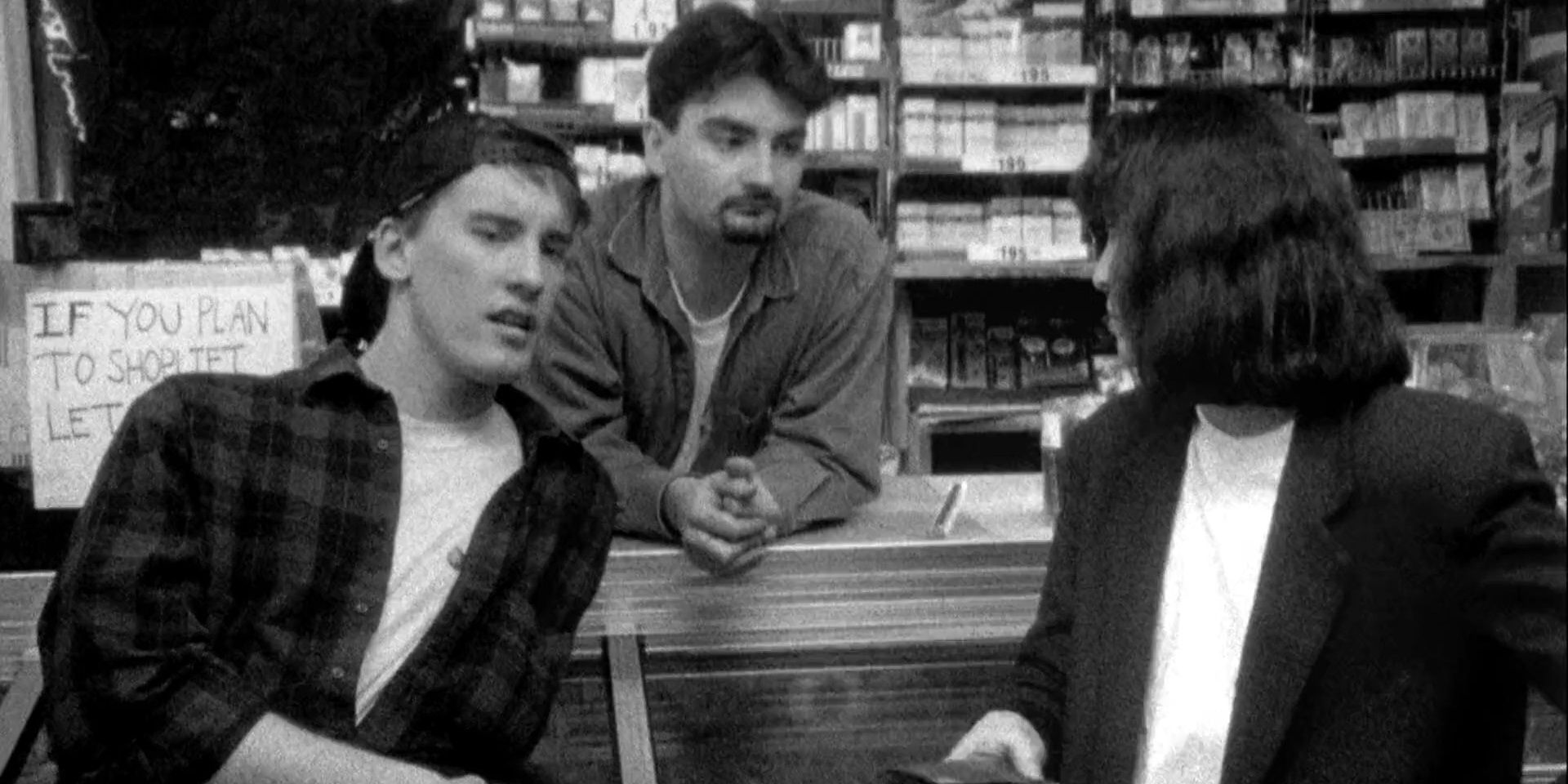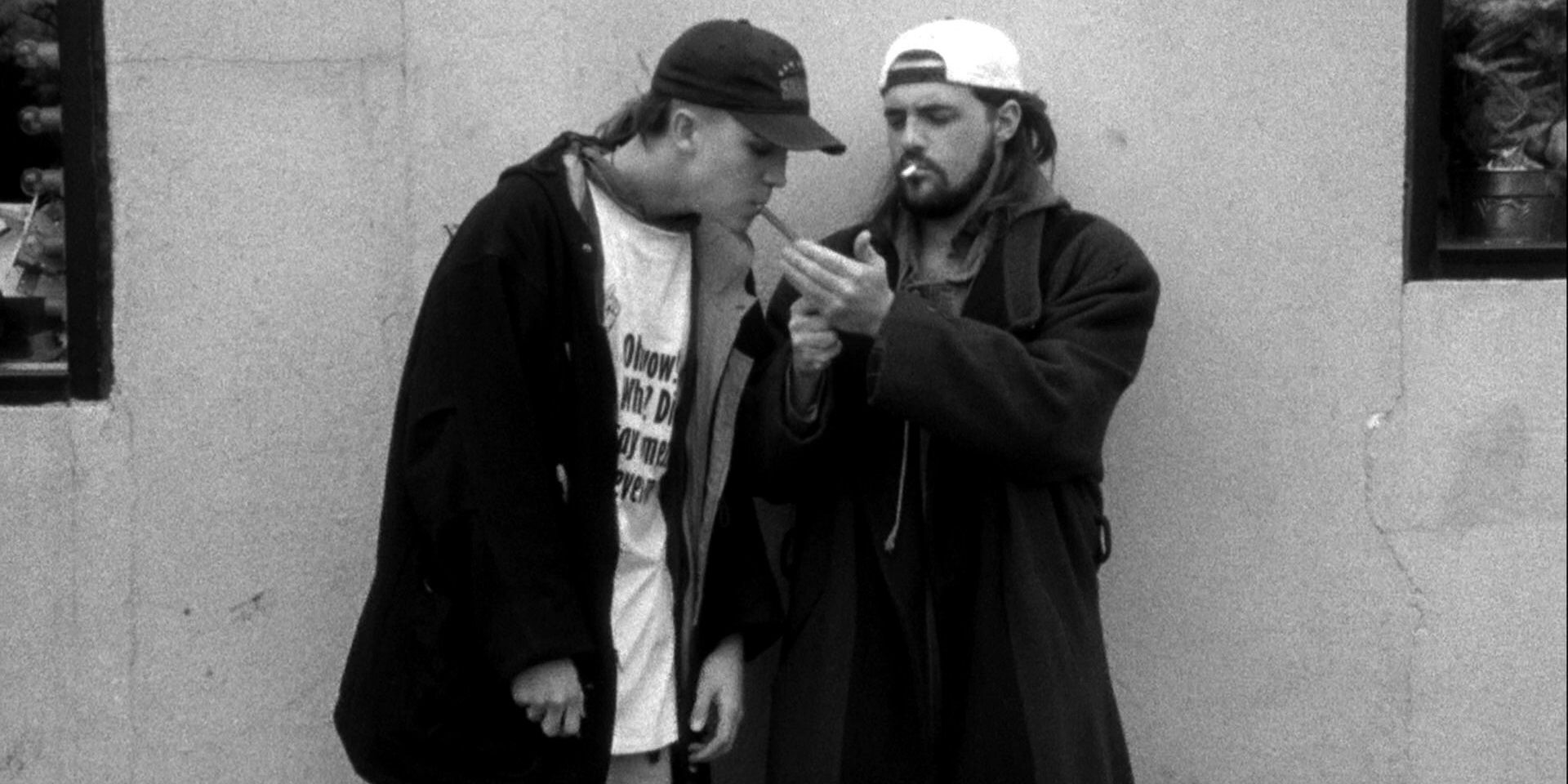In the same early-‘90s wave of American independent cinema that gave us Quentin Tarantino, Kevin Smith burst onto the festival circuit with a quirky little black-and-white comedy called Clerks. Having maxed out a bunch of credit cards and gotten himself into a mountain of debt to scrape together the budget (a method he strongly advises budding filmmakers against), Smith’s debut feature was complete and he sent it out into the world on a wing and a prayer.
Sundance picked it up, Dante and Randal’s antics were a huge hit with the festival’s crowds, the now-infamous Miramax gave it a theatrical release, it became a blockbuster (by $27,000 movie standards), and Smith’s filmmaking career was launched. The rest of Smith’s filmography has been defined by the hallmarks established in Clerks.
Dialogue-Heavy
Kevin Smith’s movies are very heavy on dialogue and this was certainly established in Clerks, which is basically an hour and a half of a guy talking to his best friend, his girlfriend, his customers, and the stoners who hang out outside the store where he works.
Smith is reportedly very precious about the page and is one of those directors who will restart a minutes-long take if a single word is out of place in one of the actors’ line deliveries.
Minimalist Direction
The black-and-white palette of Clerks wasn’t a stylistic choice, it was a financial one (Smith funded the movie out of his own pocket and black-and-white film was a lot cheaper), but it did complement Smith’s minimalist directorial style.
Many of Clerks’ scenes are shot in the simplest way possible, pointing the camera at the actors and rolling, which draws attention to the dialogue and the performances, like a stage play.
Two Best Friends
Ever since Clerks, a lot of Smith’s movies have centered around a pair of bickering best friends in the mold of Dante and Randal: Mallrats’ Brodie and T.S., Chasing Amy’s Holden and Banky, Dogma’s Bartleby and Loki, Jay and Silent Bob Strike Back’s titular duo, Zack and Miri Make a Porno’s titular duo – the list goes on.
Even the one movie Smith directed that he didn’t write, Cop Out, is a buddy cop movie centered around two best buds, played by a game Tracy Morgan and a bored Bruce Willis.
Crude Humor
From Caitlin’s accidental necrophilia in the bathroom to Randal reciting the explicit names of a dozen pornos in front of an impressionable young child, Clerks is filled with crude humor.
Smith’s particularly crass comic sensibility would permeate throughout the rest of his filmography, particularly in Zack and Miri Make a Porno.
New Jersey
The majority of Kevin Smith’s films take place in his home state of New Jersey because like all great writers, he writes what he knows. Part of what made Clerks such a hit at Sundance was its very specific identity.
Not everybody could necessarily relate to working in a convenience store in Jersey, debating the Star Wars trilogy, and playing hockey on the roof, but it was a case of a story being so personal that it becomes universal.
Quotable Lines
While Kevin Smith’s dialogue is characterized by long, unwieldy conversations between characters riffing on subjects ranging from existentialism to Batman, his movies always have plenty of quotable one-liners, too.
Clerks’ “I’m not even supposed to be here today!” was later joined by Chasing Amy’s “Always some white boy gotta invoke the holy trilogy,” and Dogma’s “We went through five Adams before we figured that one out.”
Pop Culture References
A lot of Kevin Smith’s work revolves around pop culture references. Mallrats has an inspiring monologue performed by Stan Lee cameoing as himself, while the eponymous stoners get baked with Scooby-Doo in the Mystery Machine in Jay and Silent Bob Strike Back.
This began in Clerks, which dedicates a big chunk to Dante and Randal debating which entry in the original Star Wars trilogy is the best.
Honest Look At Relationships
Kevin Smith’s movies haven’t always been the most progressive in their depiction of male-female relations, but Clerks – and, indeed, Mallrats and Chasing Amy – take a much franker, more honest approach to relationships than the average Hollywood rom-com.
While mainstream movies tend to water down the painful realities of dating, Smith’s movies have always leaned into the dark side of romance. In Clerks, for example, jealousy rears its ugly head when Dante finds out his girlfriend is 37 times more experienced than he thought.
Lots Of Cursing
Like fellow ‘90s auteur Quentin Tarantino, Kevin Smith is known for including a lot of curse words in his movies. Smith’s excessive use of profanity – an essential component in accurately conveying the juvenility of youth – was established early on in Clerks.
Smith’s most profane movie to date is Jay and Silent Strike Back, which has 248 uses of the F-word and its derivatives (averaging at around 2.38 F-words a minute), giving it the 30th highest F-word count in movie history.
Jay & Silent Bob (And The Rest Of The View Askewniverse)
Kevin Smith was way ahead of the curve on cinematic universes. He was crossing over characters in and out of his movies long before Marvel did. The shared canon of Smith’s films is called the View Askewniverse, and it originated in Clerks.
Many of the characters in Clerks (or their relatives) would go on to appear in Smith’s subsequent films. The most obvious example is Jay and Silent Bob, two lovable potheads played by Jason Mewes and Smith himself who, like C-3PO and R2-D2, pop up somewhere in every movie.

